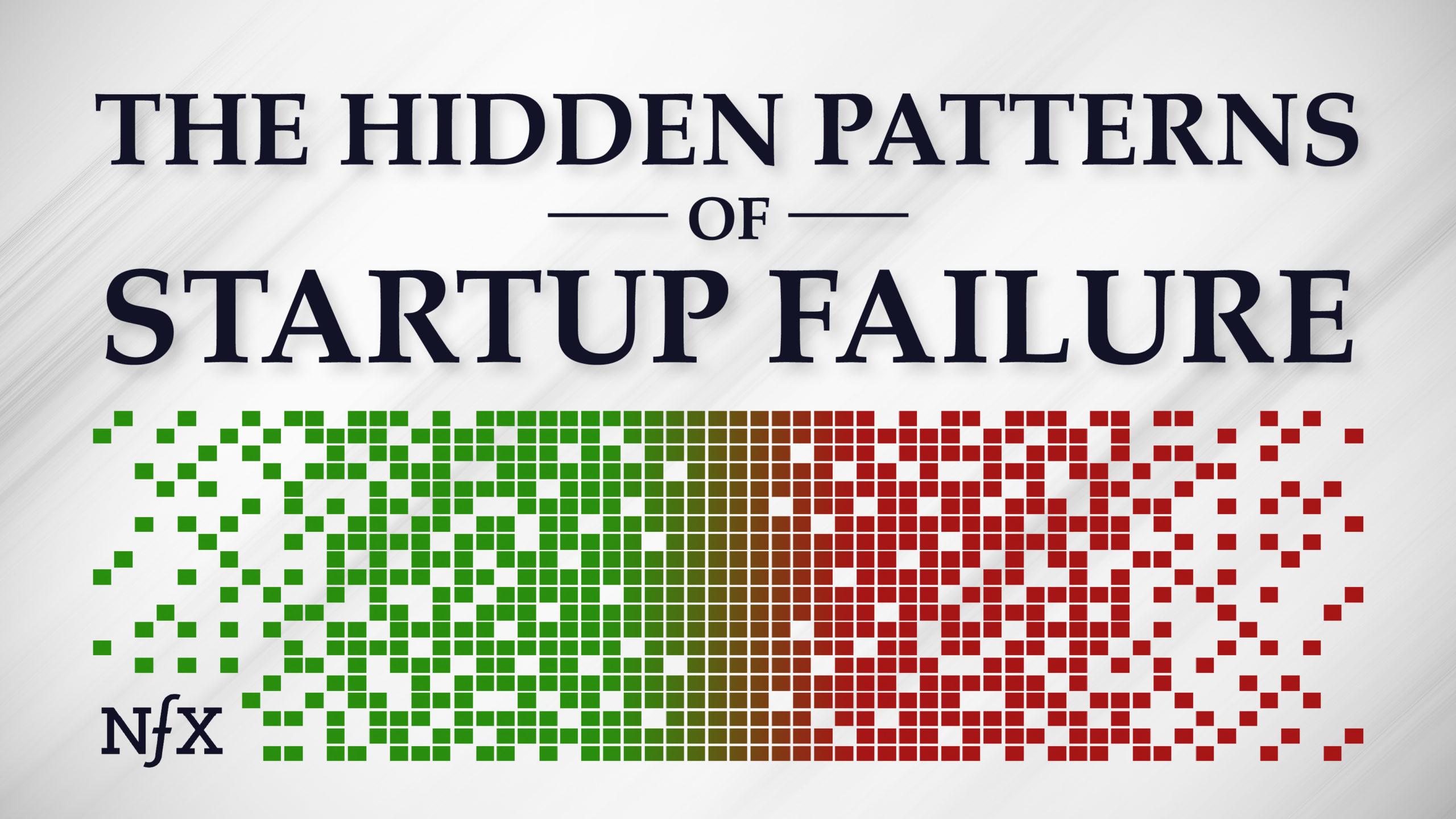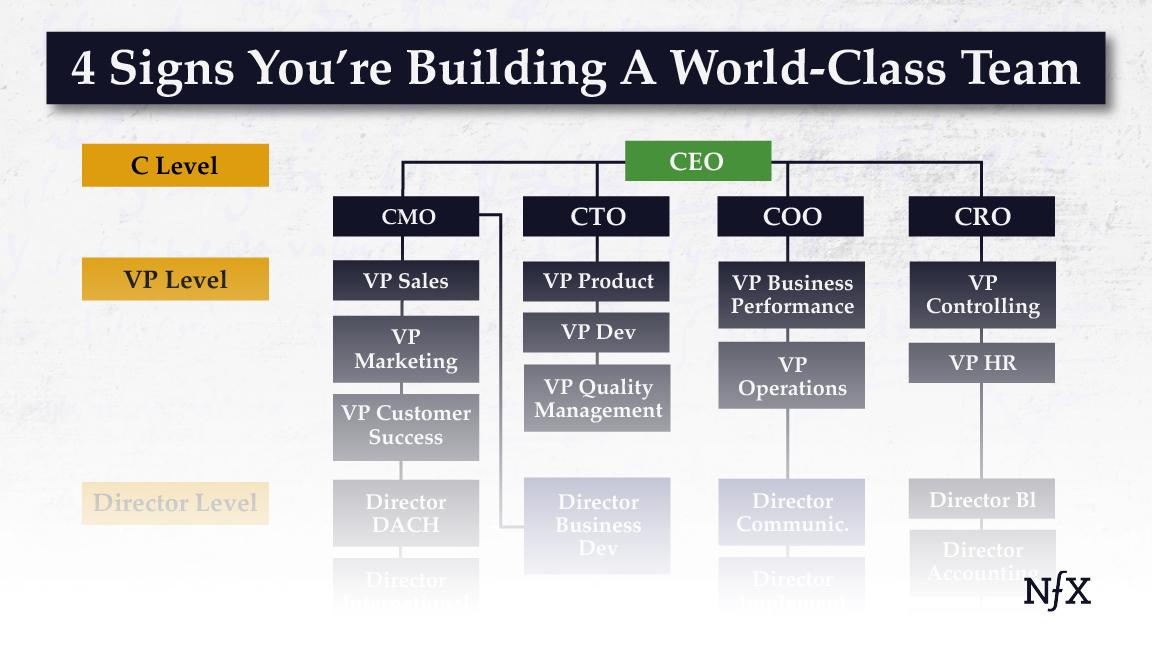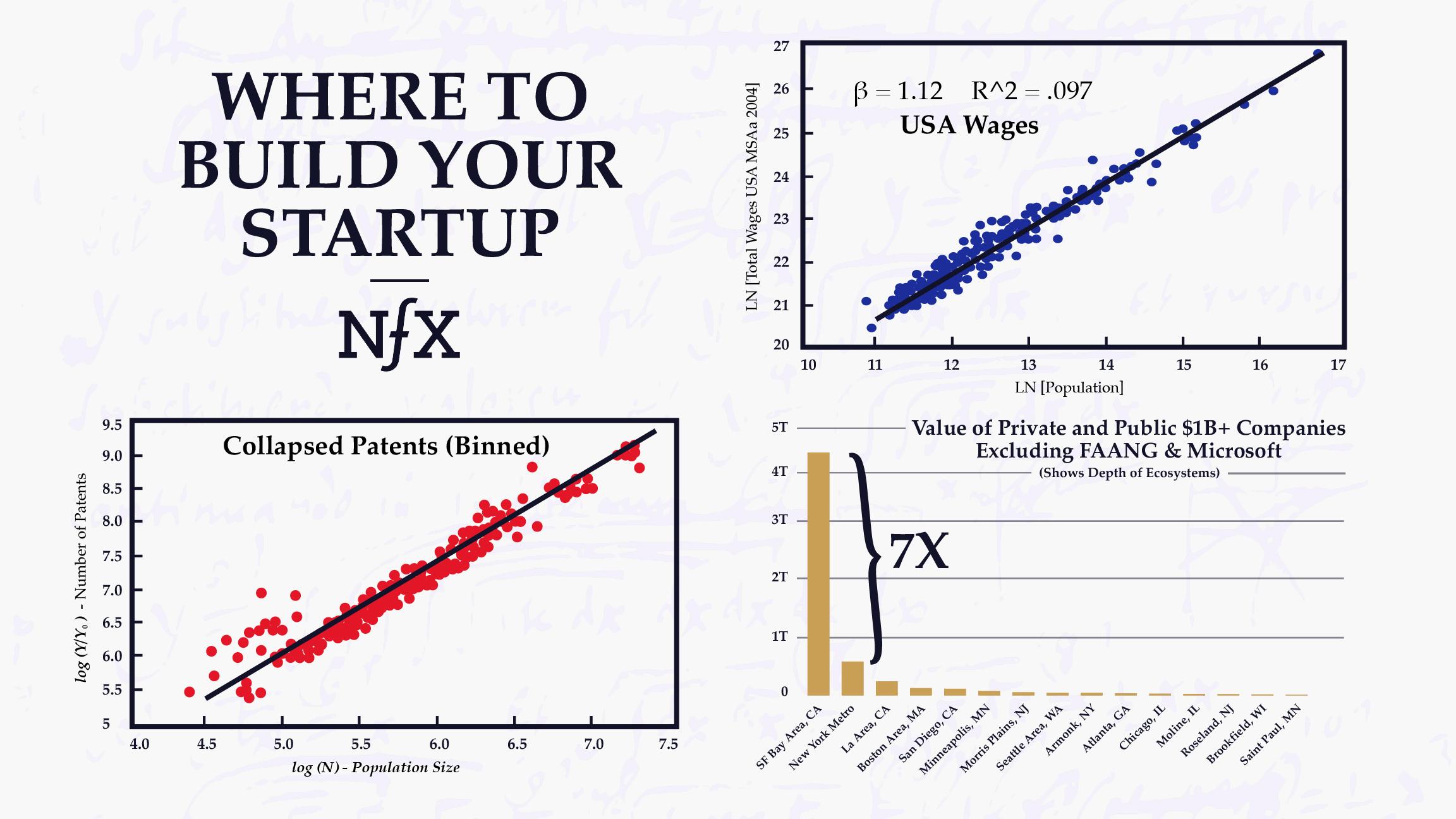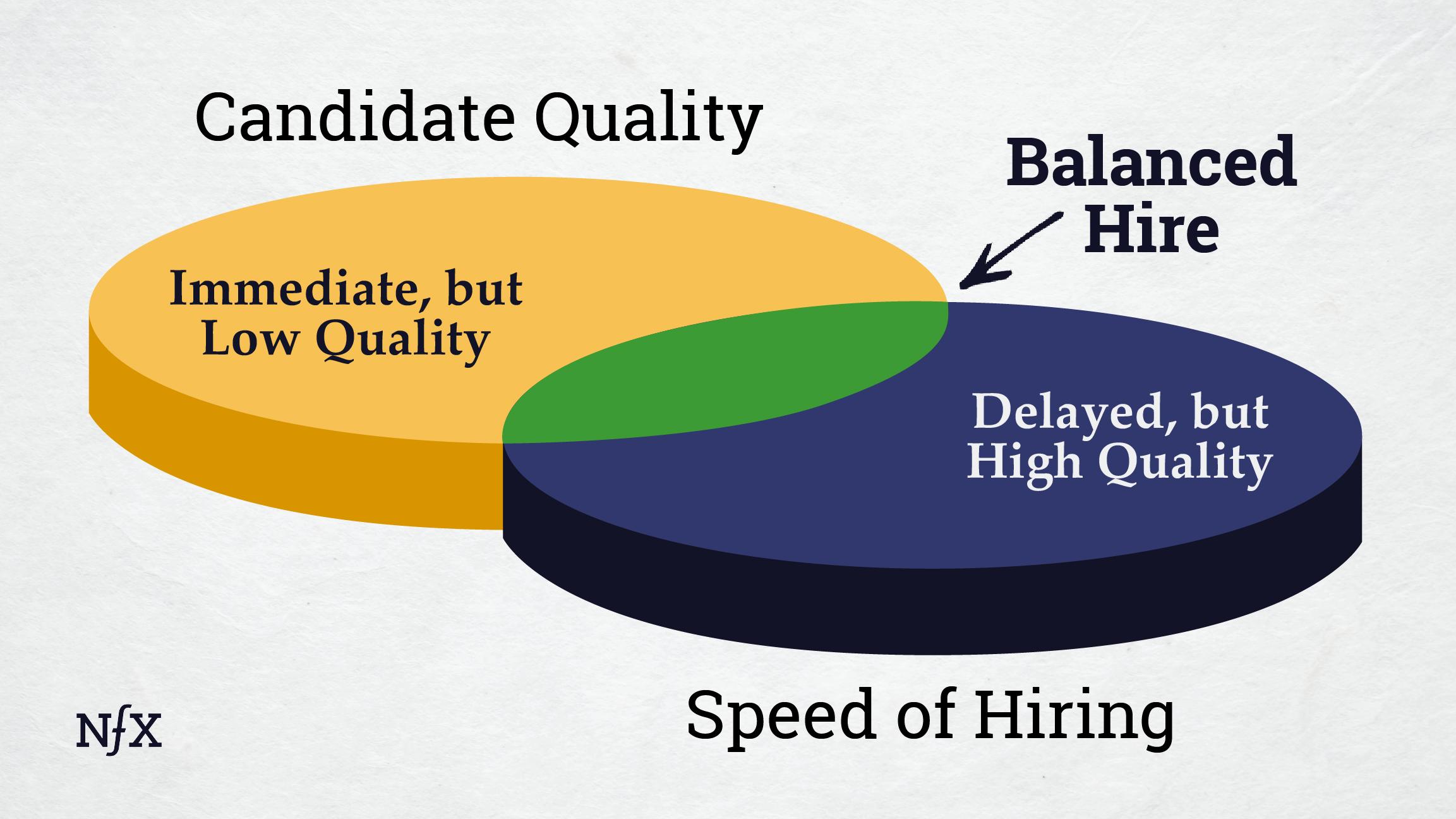

As an investor, few things are as important to me as a startup’s team. A startup superteam has the people it needs to execute and iterate with great speed.
But for many Founders, building that team is one of their hardest jobs. Why?
Because there is an infinite conflict in hiring: How do you hire the best people you can find, as quickly as possible?
It’s true that speed is your number one advantage against incumbents, and hiring too slowly can kill your startup. But hiring too quickly can also be a dangerous mistake and a costly (and too common) failure mode for startups.
What great Founders do, that others do not, is examine the balance between speed and quality, in order to make confident hiring decisions for their company. In this essay, I will outline my 7 rules for great hiring.
But first, you must understand what is at stake at both extremes: hiring too slow and hiring too fast.
The High Costs of Hiring Too Fast
At one extreme, hiring the wrong person just because she or he is quickly available and your needs are high is a huge mistake. This shortcut will actually end up costing you more time in the long run.
Let’s say you have two scenarios:
- Scenario A: Immediate Hire, Low Confidence: You make a hiring decision immediately where there’s a 50% chance that the person is not the right hire.
- Scenario B: Delayed Hire, High Confidence: You take an additional month to make the hire, but your confidence that it’s the right decision increases to 90%, meaning there’s only a 10% chance of failure.
For the average startup, it may take something like 3-6 months to figure out that a hire isn’t working out and correct the problem. With that assumption, in Scenario A (immediate hire, low confidence), you’re setting yourself back 1.5-3 months on average, plus the additional time you’ll take to replace the incorrect hire.
In Scenario B (delayed hire, high confidence), you’re setting yourself back less time on average even if you wait a month.
And there are other costs to consider. You are not only potentially losing 3-6 months of time and money when the person fails to deliver value in the role for which they were hired. In addition, the wrong hire will actually subtract value by creating tension, playing politics, damaging team culture, and lowering productivity across your whole team. By the time they leave, not only have they not delivered value, but they actually slowed everyone else down.
So, the math is clear that you should take your time with hiring — up to a point.
The High Costs Of Moving Too Slowly
On the flip side, taking a year to find the “best” person is not feasible either. One year in startup time is a make-or-break amount of time, and most often it’s a year too long — especially if you’re waiting to find a necessary member of your team.
Your speed advantage (iterating, executing, shipping) is only there if your ability to scale the team is equally speedy. You simply can’t move quickly as an organization if you can’t add the right kind of team members fast enough.
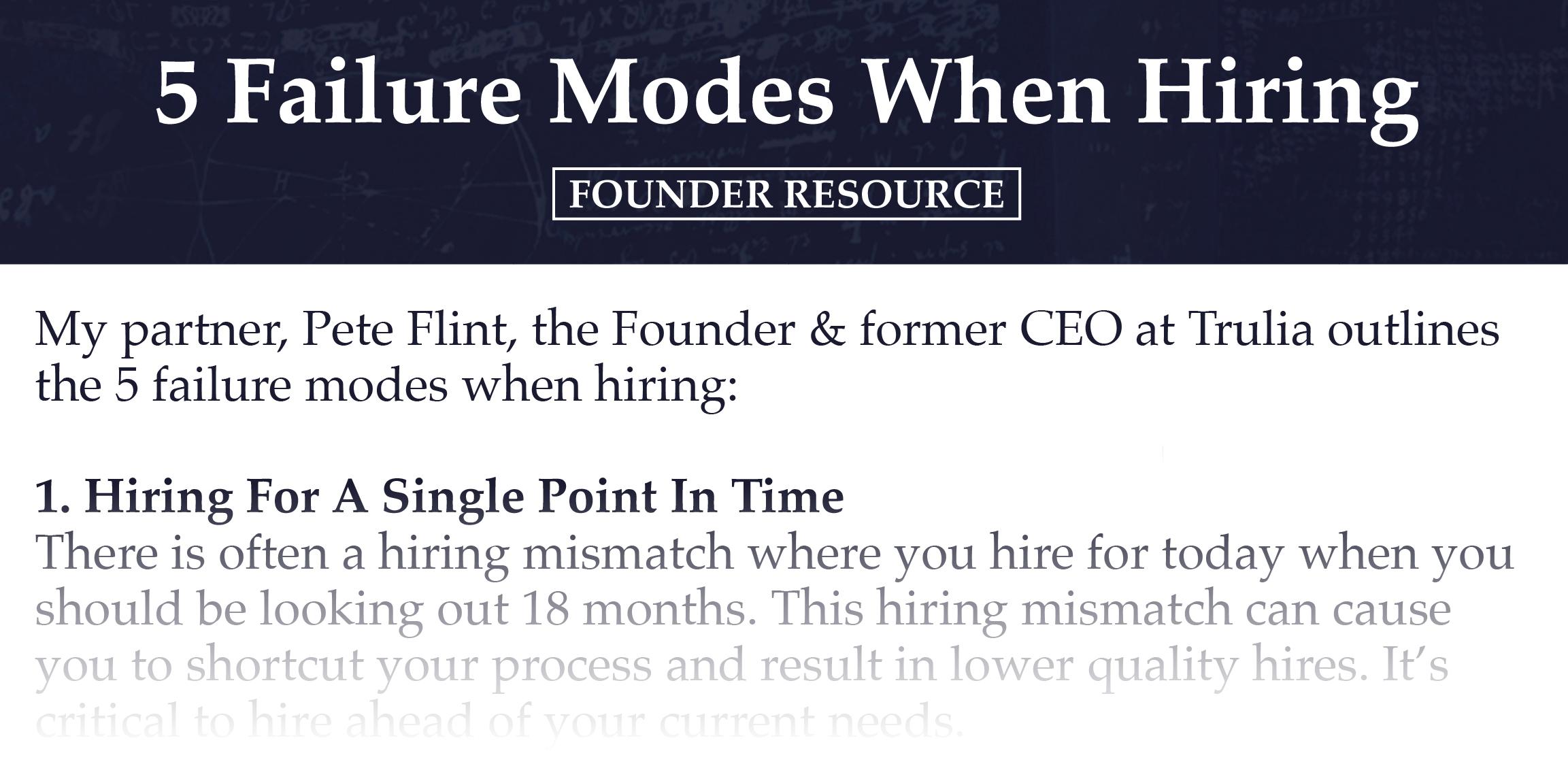

Finding The Right Balance
The solution is a combination of methodologies and tactics aimed at striking the right balance – finding someone who’s really good (not necessarily the best in the world) and adding them to the team as quickly as you can.
Below are 7 rules we’ve come up with as Founders ourselves, and now share with our portfolio companies, to strike the unique balance startups demand.
7 Rules For Hiring in Startups
1. Hire top talent before you need them
The best way to be ahead of your hiring needs is to always be on the lookout for great talent. This is a rule that has saved me years of hiring time. Whenever I stumbled across someone really great, I tried to recruit them, even when I didn’t have a specific open position.
This may seem like a tough recommendation to follow, and clearly for early-stage startups recruiting for ‘nonexistent’ roles is scary on the cost side.
But really great candidates — the real stars, with amazing skills and great DNA who are passionate and truly care — are so scarce, that whenever you run into one, you should make every effort to hire them even if there isn’t an immediate and clear job opening.
Over my career of founding and investing in hundreds of startups, almost every day I hear Founders complaining about not being able to find the right talent. Not once have I heard a Founder complain about having too many talented people in their startup.
Make it a rule to meet at least one great, talented “candidate” each week, even if you are not recruiting for a relevant role. Don’t lose a great person just to save on 1 or 2 months of salary.
2. Prioritize recruiting as a mission-critical task
Once you decide you need to hire someone, maybe the biggest mistake founders make is not treating recruiting seriously enough and not putting enough time into it.
Sometimes I hear Founders complain ‘But I have a job!’ Well, you are wrong. Hiring IS your job as a Founder. If you’re only spending 5-7% of your time recruiting, you’re likely getting to the point where you’re not going to find the right talent because you’re devoting too little time to it.
Finding the right person is ultimately a factor of how many people you screen, which tends to depend directly on how much time you put into it. True, you could get lucky occasionally and find the best candidate in your first few meetings; but luck is not a strategy and you should not count on it.
At the early stage, when you need to scale your team fast, I tell Founders that you should spend up to 20% of your time hiring. Prioritizing other things over recruiting and putting it off takes a huge toll. Don’t make this mistake. Hiring is usually the single highest leverage use of your time as a Founder.
And while spending enough time on it does not guarantee you will find the best people quickly, not devoting time will guarantee you will be slow in hiring. Put it into your calendar. Make time for more meetings with the leading candidates and prioritize them over other tasks.
3. Clearly define what you’re looking for
Now that you are devoting enough time to hiring, you must make sure you truly know what you are looking for.
Many times I’ve seen hiring processes that get bogged down unnecessarily because of a poor or unclear definition of what the Founders are really looking for. Poorly worded, vague, and even totally wrong job descriptions or requirements will not only slow you down but will actually prevent you from being able to hire the right people.
While defining the right requirements seems trivial, it’s actually not. Often, you will be recruiting for a role for the first time in your career, and you’ll need to have answers to non-trivial questions that go beyond the clear skills you want in the candidate. Questions like (for a sales role):
- What’s really important in your first sales hire? General sales experience or domain expertise?
- How technical should be your first sales hire depending on the complexity of your product?
- Do you focus on someone who could manage a team or on a great salesperson that will deliver hands-on sales?
- Is it better to recruit that person in your headquarters or maybe closer to the target market (if the two are different)?
- Does your company DNA allow for recruiting someone remote, or do you need someone who will come to the office every day and spend time with the rest of the team?
These are all meaningful questions that impact your hiring process and there is no way you can successfully hire the right person if you don’t know the answers. You will only be wasting time.
Make writing a clearly-defined job description your initial priority. Consult with your team, board, advisors, and fellow Founders to find the right answers to all the open questions. Also, it’s worth pre-defining the range of compensation you can/are willing to pay, as there’s no point in interviewing someone who is expecting a salary that is triple what you can afford.
If the process of recruiting takes a long time, make sure you update your job description as you proceed. So few startups actually adapt to what they learn along the way. Startups evolve fast and your requirements will also change. Also, the actual process of interviewing candidates often better crystalizes some of the requirements as you get to meet more potential hires and understand their skills and challenges.
Creating the right job description and keeping it up to date will help you, your team, and anyone assisting you in recruiting and ensure you will spend as little time as possible with irrelevant candidates. It’s a huge time saver.
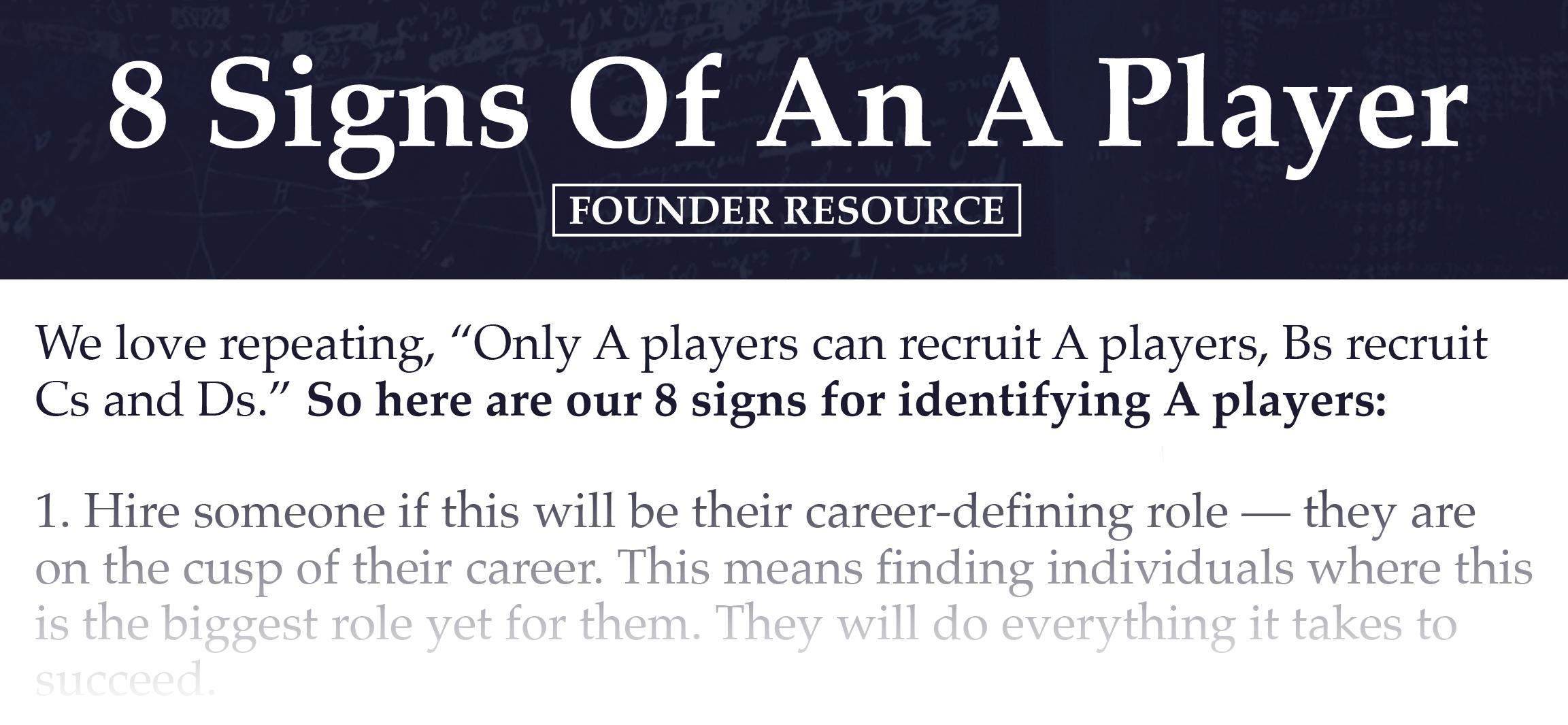

4. Leverage your network & your team’s network
Once you have the right job description, there are many ways to find potential candidates including internal recruiters, external recruiting firms, Linkedin, job boards, and a growing number of startups aimed to assist in recruiting. But none are as effective as your own network and your team’s network.
Founders often disregard their and their team’s network, assuming that, given the limited number of connections each employee/investor/advisor has, the network is not going to deliver meaningful results. They couldn’t be more wrong in this assumption.
There are three big reasons why you and your team’s network are stronger than you think:
- Screening. People in your network and your team’s network are more likely to understand your company’s DNA, resulting in candidates more suitable culture-wise. We often tell employees to “hire for attitude and train for skill”, as you can’t really change someone’s cultural DNA even if you try. So getting candidates who are pre-screened for cultural DNA by your network is a huge advantage.
- Appeal. People in your (and your team’s) network are likely to be able to interest candidates more than recruiters who don’t know you well. Often good candidates would not pay enough attention to approaches from unknown startups; being approached by someone who can truly recommend you will get top candidates to pay more attention to your company.
- Speed. Last but not least, your network is likely to move faster than any external process, and mining the network will almost always produce some relevant candidates. So network-based recruitment will always be faster than any other alternative.
How do you mine your network for candidates?
- Understand that it’s not the time to be shy.
- List out those you can ask for help.
- Prepare a perfect email asking for assistance with the job description attached.
- Have short calls with them to answer any questions they have.
- Follow up a few days later to see if they have any ideas.
- Ask them if there is anyone else they think you should consult with.
With mining your team’s network, make sure you make it easy for them to reach out to their network by providing them the job description, a strong description of the company, and further detail on the type of person you are looking for.
Financial incentives are also important. Encourage your team to reach out to their network by creating custom incentive plans which will ensure they see immediate value in sourcing great candidates — on top of the incentive to work with other great people.
I’ve seen it again and again. The more candidates you source from your network, the better chance you have to conclude a successful hiring process quickly.
5. Build an effective hiring process
Once you start getting candidates from your network and other sources, your recruitment process will dictate your ability to drive the right balance of speed and quality.
Make sure to invest time and effort in building the right recruiting process for your company. Processes may vary between companies, but they all have some common principles.
Conduct multiple interviews.
While you can usually get an initial yes/no impression very quickly, it’s almost impossible to judge a candidate in just one meeting.
We all have our blind spots and biases, and it’s important to conclude the first meeting, analyze what you heard and saw, and dig deeper in (at least) a second meeting. For senior hires, I recommend that Founders spend a few hours with a candidate, including a discussion of values and beliefs not directly related to the specific position.
Have other team members interview the candidates.
As good as you may be in screening candidates, you are likely to miss things even if you meet a candidate a few times.
Having other founders, managers and even future peers interview a candidate adds more professional skills analysis, but more importantly, guarantees a good cultural match. This is because different people will see different things, and also because the candidate may be guarded in their meeting with you as the Founder, but less so in other meetings.
In some organizations, for some roles, you can see as many as 10 different interviewers; for an early-stage startup 4-5 is usually a great number for key hires.
Use practical tests in the interview process.
Practical tests can really tell you how well a candidate will do in their role. You’re recruiting a data analyst? Give them some sample data and a problem to solve and see what they can do with it.
Have a product person review your product and tell you what they think or provide feedback on a specific feature.
People sometimes feel uncomfortable asking candidates to perform practical tasks as part of the hiring process, but until you see someone doing their craft with your own eyes, it’s often impossible to tell if they have the skills required to perform in the role.
Drive the process rigorously.
It doesn’t matter whether you are conducting 2 or 4 interviews or how difficult your practical test is, there is no reason for long gaps between the different meetings. Make sure the process is properly tracked, that meetings are not canceled, and that you are not losing time and momentum due to poor priorities.
Furthermore, if a candidate is supposed to meet a few people in person, arrange for these meetings to be one after the other rather than scheduling them on different days. This process will not only save you time but also ensure you don’t lose candidates who get offers from other organizations faster or simply feel you are too slow.
After a decision, close the hire.
Good candidates are scarce. It’s very rare that the best ones don’t have a few processes running in parallel. Once you’ve decided you want to hire someone, mobilize everyone — your HR team, your legal team, and everyone else to ‘lock them in’ quickly before they get other tempting offers from other companies.
The process will always take time, but you must not be the one delaying it. Many times, I managed to win top talent into my companies simply by moving faster in the process and closing the hire decisively.
6. Don’t lose good hires chasing the perfect hire
You have conducted a great hiring process and have a good candidate. The next piece of advice is critical: You shouldn’t lose good for the potential of someone better. A common mistake is trying to get the best of the best, and missing out on good alternatives.
We all want the perfect candidate, the one that will dramatically change our company for the better, materially contribute to the company’s DNA, and deliver amazing results in no time. That person may be around somewhere, but finding them may take years. Finding someone good, fast (assuming the person is indeed good), is going to serve you many times better than finding someone great after a long long time.
How do you know when the candidate is good enough? That’s going to be much easier to decide once you have the right job description, you’ve conducted your thorough process which included multiple interviews and a practical test, and you ensured there is a good DNA match.
After all this, the chances of making a mistake are smaller and if you feel the candidate is indeed good, you should proceed quickly.
7. Take your time with early or critical hires
In addition to all the points above, it is important to add that not every hire has an equal impact on your startup. Early hires and hires for your key leadership roles have a disproportionate impact on your company’s culture and success, so you should be willing to spend more time on them. But, at the same time, you should also be willing to move faster with more junior roles.
The more senior or important the role, the earlier the person joins your company, the more we recommend you prioritize quality over speed. This of course starts with your co-Founders, because choosing the wrong co-Founder would be incredibly painful and costly and will often bring about your startup’s failure.
On the other hand, if you’re hiring your tenth SDR and the ‘maximum damage’ they can do is just to lose a few leads, then you can prioritize speed over quality. But for the head of sales operations, be willing to slow down a bit more because the ‘maximum damage’ they can cause is much higher as they’re going to recruit the wrong people themselves.
Early hires matter the most because they seed your company, your culture, and your network. They set the tone for the type of people, culture, and organization you build and that will be hard to change or reset later on. Take the time to successfully onboard and integrate them into your company. Tread carefully with these hires.
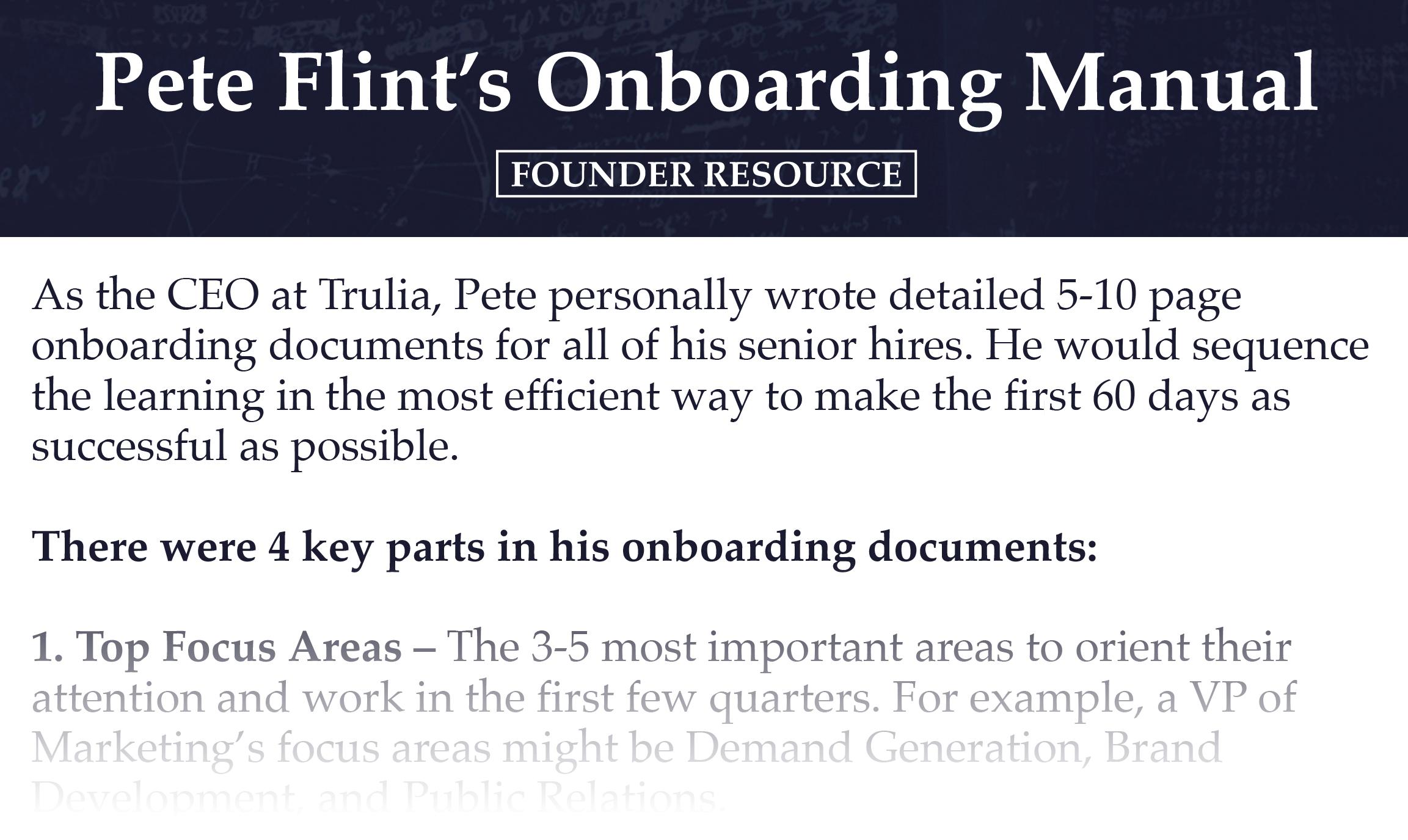

How To Know When You Made The Right Hire – And What To Do If You Haven’t
We said in the beginning that while good hiring decisions inevitably take time, firing decisions shouldn’t. So how can you know as quickly as possible whether you’ve made the right hire?
Typically when you have the right person, you immediately feel a burden off your shoulders. You can immediately feel that it’s right. The best hires fall into place like a puzzle piece — you really can’t remember how your company worked without them.


I keep hearing from Founders who make a great hire that “I can’t believe I lived without them.” This is how you’ll feel if you’ve made a good hire.
On the other hand, there’s a saying in startups that “If you don’t know whether you have product-market fit, you probably don’t have it”. If you really don’t know if you’ve hired the right person, it’s probably not the right person.
If it’s not your direct report, listen to other people who manage them or work with them. Be attentive to what they’re saying, and apply the same thinking that you would to a direct report.
If the hire is wrong, you have to understand that there is NO conflict between speed and firing. When you find out someone is the wrong person in the startup world, you don’t wait. You can’t wait.
In many cases, you need to trust your gut. When someone is the wrong person, you know it. You see how the person behaves, you see the interaction of that person with others, you see the politics they create.
The Fallacy of Sunk Costs
You need to correct mistakes fast. This is where many Founders consistently find it hard to make the right move, and it ends up dragging out the situation to no one’s benefit. Founders think “oh my god it took me so long to find this person,” and they become hesitant because they don’t want to go through the process of looking again.
But this is the wrong mindset — it’s the fallacy of sunk costs. Every day you wait to cut your losses is one more day you could have been looking for the right talent, and is one more day the person you’ll eventually fire could have spent looking for a role that fits them for the long term.


We love repeating: “Only A players can recruit A players, Bs recruit Cs and Ds”. Only top people recruit top people, everyone else hires down because they’re scared. The more B players (or lower) you have in your startup, the more poor performers they will recruit. Keeping the wrong people for a long period will guarantee you will be filling your ranks with more poor recruits. Fix your mistakes fast.
In the end, being a startup Founder inevitably means making tough decisions.
The ones who can figure out how to make those decisions fastest, without compromising on quality, are the ones who will end up winning in general — and especially in trying to solve the infinite conflict of hiring.
The Founders’ List (Hiring Series)
Below are 4 new episodes of the Founders’ List that cover important concepts in hiring and company culture:
As Founders ourselves, we respect your time. That’s why we built BriefLink, a new software tool that minimizes the upfront time of getting the VC meeting. Simply tell us about your company in 9 easy questions, and you’ll hear from us if it’s a fit.

